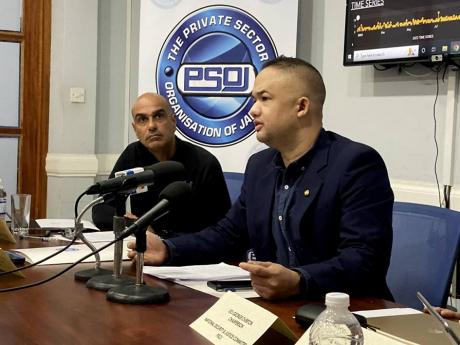New crash fatality record looms
Parris Lyew-Ayee Jr, vice-president of the Private Sector Organisation of Jamaica (PSOJ), has warned motorists to exercise greater care amid spiralling crash deaths with the year-end holidays weeks away.
Lyew-Ayee forecasts that Jamaica will exceed the 2021 record of 484 fatalities by December 31.
A total of 41 more persons are expected to die from crash injuries this month.
At a press briefing held at the offices of the PSOJ Wednesday, Lyew-Ayee expressed deep concern about the subpar condition of many motor vehicles and structural road defects.
“With the engineering side, this is not a police matter, so it is very important ... . Yes, there is an enforcement element, but there is so much that the police can do . ... It’s not all on the police. It’s not all on the road engineers. It’s all of us,” he said.
Lyew-Ayee also called for better road engineering and more public education through government agencies and the private sector.
“Road markings, road lightings, road designs, proper road drainage, all of those is another element to road safety,” Lyew-Ayee said.
“The National Road Safety Council is advocating for what’s called safe-systems approach. You look at everything. The entire road environment, everything. From not just training motorcyclists, but also pedestrians on how to cross the roads properly, proper drivers, proper engineering of medians and road paintings, traffic lights, street lights, all of those elements,” he said.
Referencing crash hotspots on the North Coast Highway, the PSOJ vice-president said engineering a higher-friction surface could help save lives.
Lyew-Ayee emphasised that crashes had a wide-scale impact on the public purse and the broader economy, including healthcare insurance claims.
He said the public health system is burdened with costs of between $4 billion and $5 billion per year to treat minor injuries.
“That is very significant. Interesting enough, the least cost from a public health standpoint is when you die. There is no need for intensive care, lifelong treatment, physiotherapy, none of those things,” Lyew-Ayee said.

